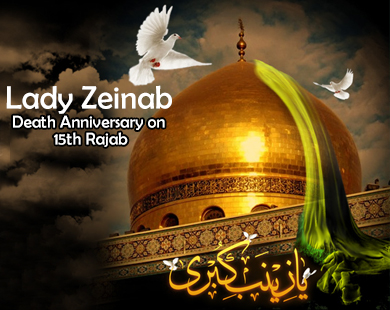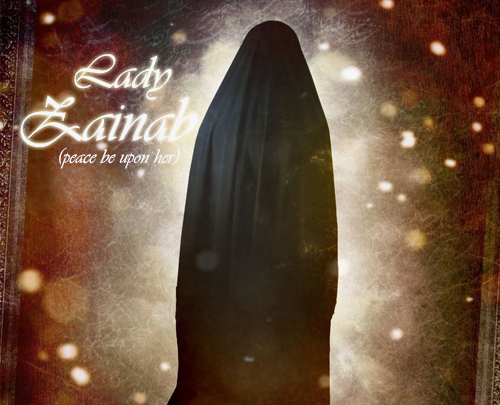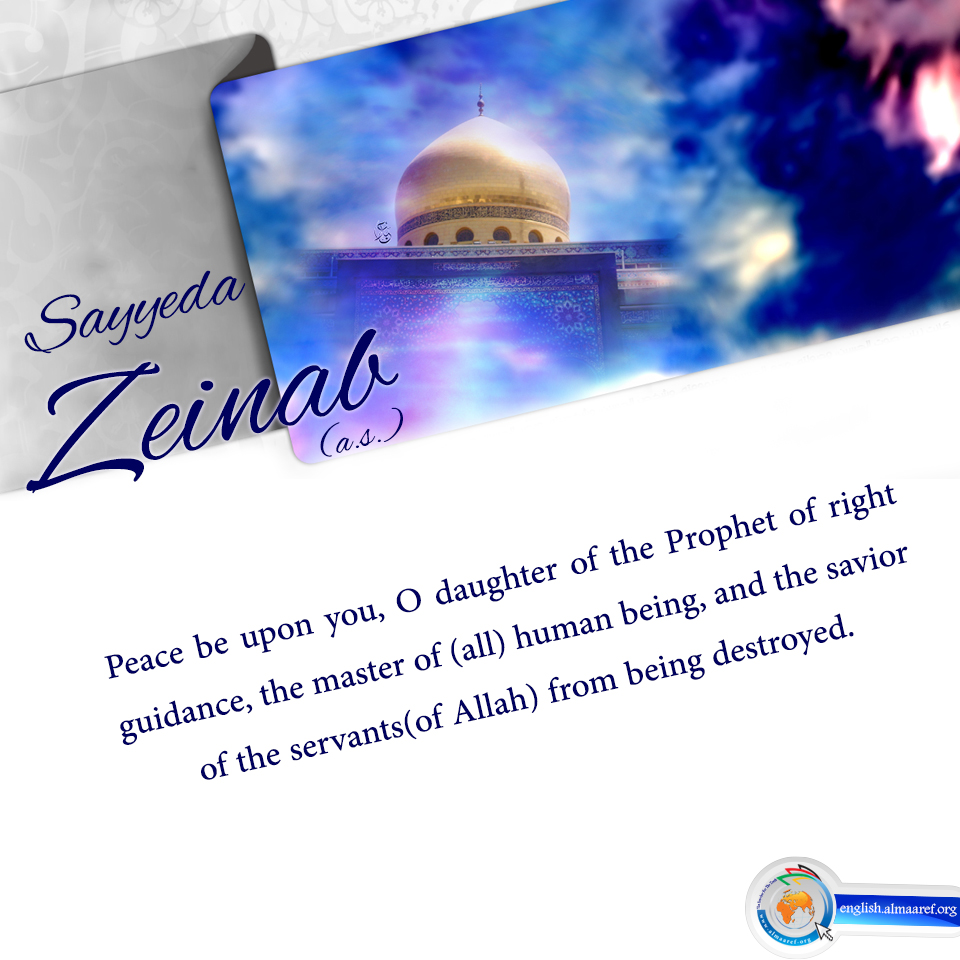The death of the vanguard of protection for the members of the family of the
Prophet and the lady who carried forth the message of Kerbala for the future
generations, Lady Zeinab the daughter of Ali (AS) holds a special place in the
hearts of all Muslims.
Born into a family of spiritual purity with a grand-father, mother, father, and
brothers belonging to the tree of infallibility and the house in which the
Qur’an descended, her environment was one which permitted her to reach to great
levels.
Although she lost her mother when she was still a child of around 7 years,
another Fatima (later on she became known as Ummul Baneen), entered into her
father’s life and took on the arduous task of raising future leaders of the
Ummah. However, the loss of her mother at such a young age did not prevent her
from picking up her exemplary qualities. Just as her mother stood up to speak in
the Masjid of the Prophet when her rights were stolen from her (in regards to
Fadak), so too when the caravan of the Ahlul Bayt were taken to the palaces of
Ibne Ziyad and Yazid, this daughter of Fatima, as the mirror image of her
mother, stood up to defend the Ahlul Bait and their rights.
A model woman for all generations, one of her claims to fame was her profound
knowledge of Islam. Although she never frequented a school to learn the faith of
Islam, memorization of the Qur’an and the commentary of the Book of Allah (swt)
and all other aspects of the faith, she none the less was recognized as an
authority. In fact, due to her not going to any formal school, her nephew, the
4th Imam commonly referred to her as the “The Scholar who had no formal
teacher.”
A point which the sisters of today can learn from this towering personality,
while in Kufah during the reign of her father, the Commander of the Faithful,
she held special sessions for the Muslim women who would come to learn about
Islam and a detailed expose' of the Qur’an. Thus, rather than the men teaching
the women, she took it upon her self to teach those of her gender not about
theology but also Islamic morals and ethics!
Her lofty rank and status would however, not grant her immunity from the
clutches of tyranny.
Although the events surrounding her death are obscure, and there are definitely
discrepancies as to what occurred after the massacre in Kerbala in 61 AH to this
noble woman, however most historians write that she lived only one year after
the massacre and at the age of 57, left this mortal world.
Even the reports of where she was buried conflict with one another with three
prominent opinions being put forward by the researchers. Some say that she died
and was buried in Medina; others claim Egypt where there is a large shrine for
Sayyida Zeinab while the third and most compelling belief is that she died in
Damascus.
“Peace be upon her the day she was born, the day she died and the day she
will be brought back to life…”


















